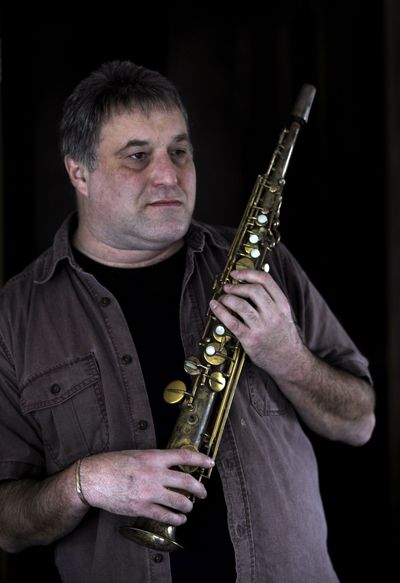This column reflects the opinion of the writer. Learn about the differences between a news story and an opinion column.
Doug Clark: Taking in Billy Tipton’s legacy, 25 years later

It all began 25 years ago with a tip from Spokane County Coroner Graham McConnell.
“Clark,” he told me, “you’re not going to believe this, but …”
That’s how I learned the fantastic secret that Billy Tipton, a well-known Spokane jazz musician and booking agent, couldn’t quite carry to the grave.
Tipton died of a bleeding ulcer, but that wasn’t the story.
The shocker was that Tipton was born Dorothy Lucille in 1914. She borrowed her brother William’s name to play jazz as a teenager and kept up the male masquerade for 54 years.
The performance was worthy of an Academy Award.
None of Tipton’s three adopted sons knew the secret. Ditto the many musicians who played with Tipton.
Even Tipton’s ex-wife claimed she didn’t know, although I always took anything Kitty Oakes (who died in 2007) said with a case of Morton salt.
Billy Tipton hadn’t crossed my mind for some time. Until this week, that is, when William – one of those aforementioned sons – called to remind me that Jan. 21 was the silver anniversary of his father’s death.
A quarter of a century – yikes!
You know you’re getting old when your career milestones start hitting their own milestones.
But I’m glad he called. I’ve always believed that Billy Tipton deserved to be remembered as one of Spokane’s most fascinating figures.
There was a time when the name was on everybody’s tongue.
The world, it seemed, couldn’t get enough about this improvised father who coached youth sports and who lived a quiet life in a modest South Hill home with a wife and three boys. The story spawned a book, music and musical groups, and talk of a Hollywood movie that never quite got enough traction.
Tipton was grist for talk shows, tabloid accounts, and countless newspaper and magazine spreads. There was even a Billy Tipton-based opera.
The production enjoyed a short run in Olympia but never played here in the city where Tipton settled after years of performing on the road.
Tipton definitely deserves a place in Spokane lore.
So Friday found me in a Spokane Valley mobile home where William, 44, graciously showed me some of his Tipton treasures: publicity photographs of the Billy Tipton Trio, copies of the two jazz piano albums that Tipton recorded in the mid-1950s and even a tarnished, aged soprano saxophone that William said Tipton played in nightclubs and jazz joints all over the country.
I asked William how he felt about his dad after so many years.
“I generally feel the same way that I did back then,” he told me. “I love him, but I wish he were here to explain some of these things.”
This was my first interview with William, who sometimes refers to himself as Billy Tipton Jr.
When I broke the story about Tipton’s sexual identity, the family was divided into two distinct and opposing camps.
On one side were brothers Scott and Jon, the main sources for my stories.
On the other side was the cantankerous Kitty, an ex-stripper who could out-cuss the saltiest sailor.
After a failed attempt to stop The Spokesman-Review from publishing my first Tipton column, she immediately switched gears, hired an agent and tried to cash in on her newfound celebrity.
The two camps were acrimonious to the point that Tipton’s ashes had to be legally divided between them.
William was always viewed as being aligned with Kitty back then. But that, he told me Friday, was an unfortunate misconception.
“It just kind of fell into place that way,” he said. “I was young, just 19.”
With so many years gone by, there’s no reason to rehash all the dysfunction, the illegal adoptions and family feuds that were revealed after Tipton’s death.
Here’s what I find important to focus on: In all my interviews and research on the subject, I never encountered anyone who had one bad word to say about Billy Tipton.
Tipton, it appears, was kind and congenial with everyone he knew or worked with.
That’s a legacy worth remembering.
“He was a phenomenal person,” William said. “He was a better man than most men could be.”
